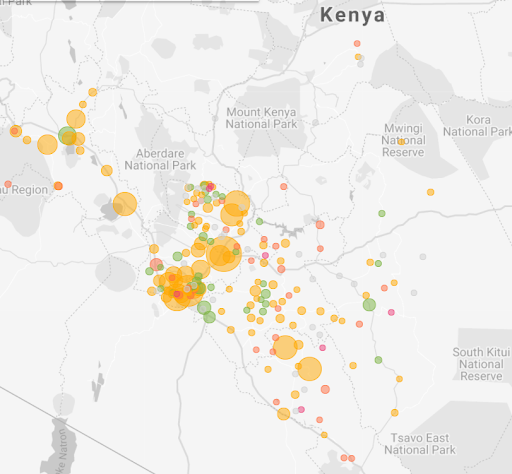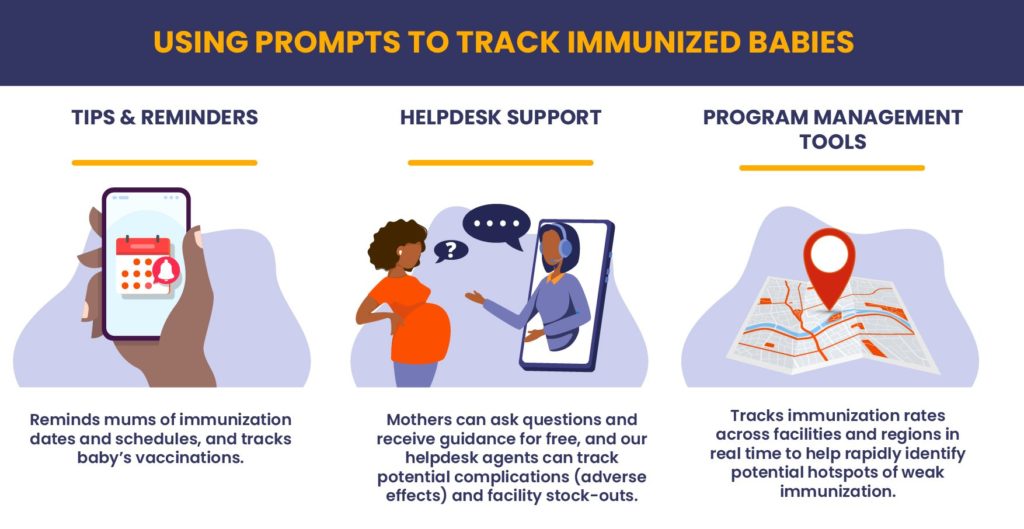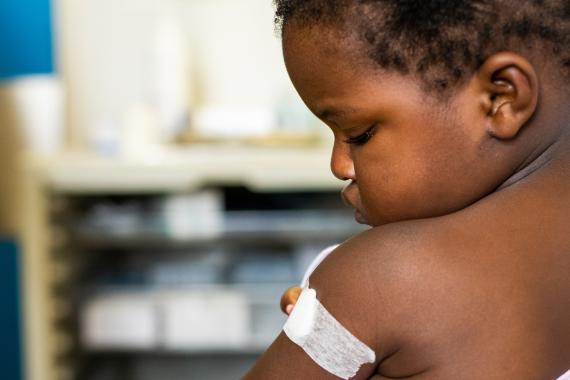Vaccines are critical to building our defenses against the 20+ life-threatening diseases that continue to plague the lives of millions around the world. But most of us won’t remember getting them.
A data challenge
From birth to one year, infants are – or should be – administered seven vaccines to combat diphtheria, pertussis, tetanus, TB, pneumonia, rotavirus, and polio. Immunization has been one of the greatest global health and development success stories – a key to curbing rapid outbreak transmission, bolstering global health security, and lowering child morbidity and mortality. Thanks to rigorous immunization campaigns, deaths from measles, a disease accounting for half of all deaths to children under age 5 worldwide, fell by 74% between 2000 – 2007, and the incidence of polio – once present in 125 countries – has decreased by 99%.
Yet against this backdrop of success a new, major data challenge emerges; namely how to identify under-immunized babies and infants when coverage is already high. Generating high-frequency, real-time data on where, when and how to reach them is one approach to closing the immunization gap, ensuring all infants receive their full dose of vaccines as a basic human right.
An mHealth solution
PROMPTS is Jacaranda’s AI-enabled digital health tool empowering 800,000 mums across Kenya with critical information around pregnancy and postpartum. The platform is now being used to reach the last mile of underimmunized babies and infants and revive COVID-19 stricken immunization campaigns by tracking where these infants are, and geographic hotspots of weak immunization.

Building on its two-way messaging and data collection capabilities, PROMPTS is being used across fifteen counties in Kenya to send information about child immunization to mums after delivery, reminding them of when to take their babies to the clinic for vaccination, and asking questions about adverse events following immunization (AEFIs) – such as a fever or headache – to help combat vaccine misinformation and hesitancy.
Mums might receive the message ‘Have you taken your baby for its week 6 vaccination?’. If mum replies ‘no’, the next question is ‘why’. This follow-up is critical. Data collected from mums’ responses is relayed to government partners, who are then equipped to target barriers like vaccine stock-outs in facilities, or vaccine hesitancy, and improve immunization coverage in a resource-efficient way. The information is collected in a simple-to-use dashboard, tracking county immunization coverage, vaccines administered by type, and missed appointments by immunization schedule (at birth, weeks 6, 10, 14, and months 6, 9, 12).
This solution allows health system administrators to collect feedback directly from their clients in a way that hasn’t traditionally been possible at this scale. The data collection is built using an open-source Global Good software and the dashboards are built on a free data visualization tool.’
– Jay Patel, Head of Technology, Jacaranda Health

Sometimes defaulting (when mums don’t take their babies for vaccination) is linked to other, often-unseen factors, like transport – or lack of it. Grace and her team’s work responds to a direct call for support from Kenya’s Ministry of Health (MoH) to uncover the why of poor immunization coverage across many parts of the country.
We understand that mums have different barriers to vaccination, and hope to bridge this gap. Maybe they can’t reach or pay for transport to facilities, maybe they distrust the [healthcare] providers. PROMPTS tracks these responses – and proactively shares information with county health managers.’
– Grace Kimenju, Product Manager, Jacaranda Health
By adapting its innovative technology, and applying Human Centered Design approaches to determine the right content, frequency and timing of messages to mums across different contexts, Jacaranda can support governments to reach the ‘last mile’ of under-immunized and unimmunized children – and support the path to global vaccine coverage.

